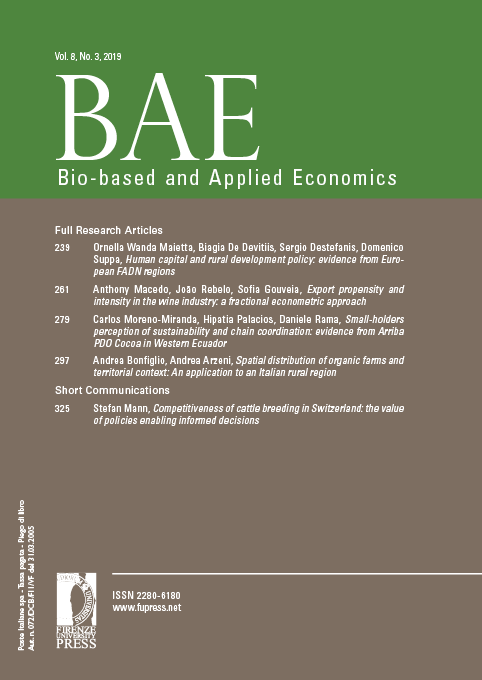Small-holders perception of sustainability and chain coordination: evidence from Arriba PDO Cocoa in Western Ecuador
Published 2020-11-09
Keywords
- socio-economic,
- agricultural regulation,
- family farming,
- governance structure
How to Cite
Abstract
Protected Denominations of Origin (PDO) refer to the adoption of producers’ voluntary standards to highlight the quality to consumers and improve the socio-economic sustainability of small-holders. Usually, in agricultural circuits, these focus on aspects of production systems and intrinsic features of agricultural raw materials. In agri-food clusters, PDO labels focus globally on market recognition of sensorial elements of farming and agroindustrial products. The study’s objective was to analyze socio-economic and governance components to understand the PDO Cocoa Arriba (Theobroma cacao) chain and its sustainability to bring forward potential strategies in Ecuador. The information employed comes from the observation of two strings (Arriba PDO and CCN-51) by interviewing 450 respondents. Principal Components Analysis was introduced to contribute with relevant insights. The framework applied accounts with a revision of primary and support activities and coordination mechanisms identification. The study clustered pre-production, production, and post-production tiers. According to the results, Arriba PDO production systems represent a disadvantage for farmers because, from the production point of view, the premium price paid for product certification is debatable. Finally, the enhancement of national regulation to assist chain actors and the stimulus of young producers and associations empowerment is an urgent requirement.






